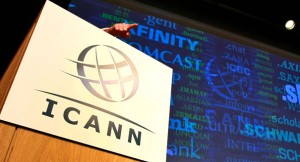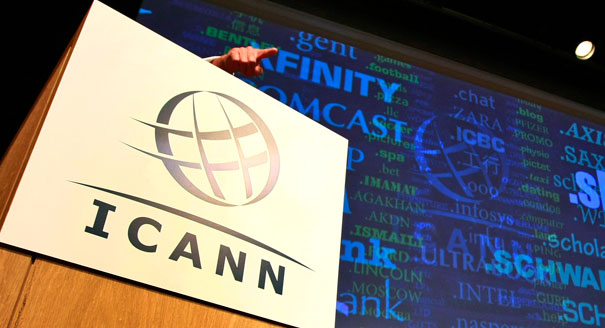 The Internet Corporation for Assigned Names and Numbers – once an obscure nonprofit that was ostensibly important just to a handful of tech heads – is now mired in controversy as a result of the Obama administration’s announced intention to put an end to the last vestiges of America’s supervision of the Internet.
The Internet Corporation for Assigned Names and Numbers – once an obscure nonprofit that was ostensibly important just to a handful of tech heads – is now mired in controversy as a result of the Obama administration’s announced intention to put an end to the last vestiges of America’s supervision of the Internet.
This formerly innocuous California corporation, created in the late 1990s by the Clinton administration as part of its efforts to transition the Internet toward commercialization, could suddenly become the only body with the authority to prevent countries like China and Russia from gaining control of the Internet. Given the past inconsistencies of its CEO Fadi Chehade, that’s a risky bet at best.
Through its bylaws, ICANN vests tremendous power and responsibility in its board of directors. Lately, that’s become a real problem. “For instance,” as Brett Schaefer, Paul Rosenzweig and James Gattuso wrote Tuesday on Real Clear Policy’s The Mark, “last summer ICANN’s board of directors was poised to approve a by-law change that would have enhanced the influence of the committee through which governments offer advice to ICANN. The proposal united the Internet community in opposition — a remarkable achievement. Such unanimity among the notoriously factional community had occurred only once before: that same summer, in reaction to ICANN’s lack of accountability and transparency.”
This kind of kowtowing to foreign interests (think China, Russia, Iran) by ICANN’s board undermines the Internet’s openness and makes it more vulnerable to an eventual takeover by the United Nations’ International Telecommunication Union or some other global body that could institute restrictions, sanctions, and access fees that would retard the Internet’s growth and comprise its independence.
One way around this, should the administration continue to press forward with its plans – which at the moment it is not clear it can do because of the deadlines involved – would be to transform it into a truly bottom-up organization in which ICANN’s stakeholders would be empowered to be the ultimate decision-makers. Since we can’t trust ICANN to self-govern, it is appropriate to rely on Internet users to provide outside checks on the organization through a membership model.
The solution to this governance problem, clearly a complicated issue, is hiding in plain sight. A membership structure, organized like an outside board of directors could keep the board and ICANN’s senior leadership in check. Under such a structure ICANN members would not be hand-picked by the current executive team but would instead be representatives chosen by the subgroups – currently 11 – that comprise the ICANN’s existing multi-stakeholder model.
Despite ICANN’s repeated assertions that this would be an impossible change to make, it would be legal under California’s Nonprofit Public Benefit Corporation law to do so. In fact, this very structure is used frequently by California nonprofits. In 2010, ICANN’s own attorney to one of its subcommittees, R. Shawn Gunnarson, acknowledged as much when he stated in a memorandum that ICANN’s position that a membership structure would “permit ICANN to do what it says California law forbids: empower some entity to exercise binding review of the board.” ICANN’s present Articles of Incorporation even acknowledge that such a structure is possible.
What the Articles of Incorporation give with one hand, however, ICANN’s bylaws take away with the other. The bylaws eliminate the possibility of having members in Article XVII, which specifies the corporation shall not have members as defined by California’s Nonprofit Public Benefit Corporation law. That can and should be changed, especially as a precursor to any action by the Obama administration to transition full responsibility for Internet oversight to ICANN. A strong system of accountability is the only way to insure that the process of Internet governance won’t captured by rogue countries or other special interests when and if the domain name system function is transferred.
A thoughtfully organized membership structure could function like federalism for the Internet, by allowing the subgroups comprising the multi-stakeholder model of governance to elect a representative (with a specific constituency) to help make policy decisions that govern the global Internet. It’s a solution that should even be acceptable to Chehade who, when speaking publicly on the issue, likes to suggest he can’t even change the brand of coffee served in the headquarters cafeteria on his own authority.
Any solution, however, will take some time to develop. The stakeholders need the opportunity to formulate a plan without the pressure of an artificial deadline for a handoff as currently exists. In order to not extend the current contract past its September 30expiration date, a concrete transition plan with accountability assurances must be in place by June. The existing contract with ICANN needs to be extended to give the community of Internet stakeholders enough time to preserve the independence of the Internet. Meanwhile Chehade and his board need to explain why they are playing “hide the ball” with the membership option.
Peter Roff is veteran Washington news and policy analyst who appears weekly on the One American News Network providing comment and analysis on the political dimensions of public policy issues.
